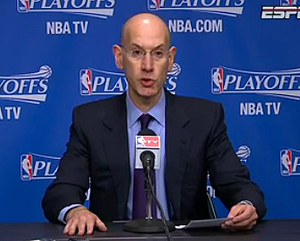Effective PR leadership may be defined as the ability of a leader to mobilize in public opinion behind his or her decisiveness in taking action.
 Here, then, is an anecdotal summation of the recent state of such PR leadership in various sectors of society:
Here, then, is an anecdotal summation of the recent state of such PR leadership in various sectors of society:
- In the world of statecraft, President Barack Obama, a leader leading by wishful thinking, is embarrassed by imaginary red lines in Syria, torpedoed by dashed peace talks in Israel, and chastened by rejected trade agreements in Japan.
- In the world of commerce, General Motors CEO Mary Barra, a leader leading by talking points, careens from one recall crisis to the next, unprepared, unknowledgeable and unable to get a grip on the extent of the problem her predecessors dumped at her door.
- In the world of journalism, Sean Hannity, a leader leading by dog-eared dogma, goes all-in on the cause of a crackpot tax cheat, who turns to be an indefatigable racist.
- In the world of big-time athletics, Mark Emmert, a leader leading by whistling past the grave year, clings to his perch at the top of a teetering National Collegiate Athletic Assn., by defending a defenseless system whose foundations have unglued.
Incontrovertible conclusion: Never have so many been lead by such mediocrity.
In fact, the last PR leader was a diminutive giant named David Stern, the former commissioner of the National Basketball Assn. Stern was a benign despot, who led democratically, knowledgable about all matters surrounding basketball, sensitive to public opinion, but with a willingness to wield an iron fist.
When Indiana's Ron Artest invaded the Detroit stands to fight with fans in 2013, Stern immediately suspended him for the season and fined him $5M. When he was asked if the Artest vote of the NBA Board was "unanimous," Stern famously replied, "Yes, 1-0."
In other words, Stern was a leader, more than willing to do what he thought was right, regardless of politics or payoffs or polls: he stood up for what he stood for.
And this week, Stern's hand-picked successor as NBA Commissioner, Adam Silver, will make a decision on the fate of Donald Sterling, the new Public Enemy No. 1, who owns the Los Angeles Clippers.
Sterling, as the world has learned over the past several days after either his girlfriend or his wife leaked a recording of their benefactor's racist ranting to a salivating TMZ.com, is a sad, bad dude; at the same time, pitiable and pitiful, an unhappy billionaire slumlord, obviously confused and tormented with his lot in life. Sterling, at best, is a pathetic figure, sad man who has lost his way.
In the court of public opinion, of course, like the veridict on Paula Dean, the immediate and unforgiving universal judgement on Sterling was, "Off with his head."
So the "right" call here, the one that Silver has been schooled by his wise predecessor and studies of prior decisions with ignorant owners like Marge Schott in baseball, which will be made this week will be, in effect, "suspend" Sterling from having anything to do with the team -- managing it, attending its games, even occupying its offices. In effect, as baseball did with Schott and others, Silver will begin the process to force Sterling to sell the team he has owned for 33 years.
That's really the only course for a PR leader-concerned with doing what's right and affair and appropriate--to take with respect to poor, misguided Sterling.
* * *
Fraser P. Seitel has been a communications consultant, author and teacher for 40 years. He may be reached directly at [email protected]. He is the author of the Prentice-Hall text The Practice of Public Relations, now in its eleventh edition, and co-author of Rethinking Reputation and Idea Wise.


 There’s a fine line between newsjacking and taking advantage, aka ambulance chasing. Our job as PR professionals is to tread it carefully.
There’s a fine line between newsjacking and taking advantage, aka ambulance chasing. Our job as PR professionals is to tread it carefully. PR firms need to be mindful of ways their work product may be protected by the attorney-client privilege whenever working with a client’s internal legal team or its external legal counsel.
PR firms need to be mindful of ways their work product may be protected by the attorney-client privilege whenever working with a client’s internal legal team or its external legal counsel. Manuel Rocha, former US ambassador and intenational business advisor to LLYC, plans to plead guilty to charges that he was a secret agent for Cuba.
Manuel Rocha, former US ambassador and intenational business advisor to LLYC, plans to plead guilty to charges that he was a secret agent for Cuba. CEO mentoring is an often-overlooked aspect of why CEOs are able to make good decisions, and sometimes make bad ones—all of which intersects with the role and duties of a board.
CEO mentoring is an often-overlooked aspect of why CEOs are able to make good decisions, and sometimes make bad ones—all of which intersects with the role and duties of a board.  How organizations can anticipate, prepare and respond to crises in an increasingly complex world where a convergent landscape of global challenges, threats and risks seem to arrive at an unrelenting pace.
How organizations can anticipate, prepare and respond to crises in an increasingly complex world where a convergent landscape of global challenges, threats and risks seem to arrive at an unrelenting pace.


 Have a comment? Send it to
Have a comment? Send it to 
No comments have been submitted for this story yet.